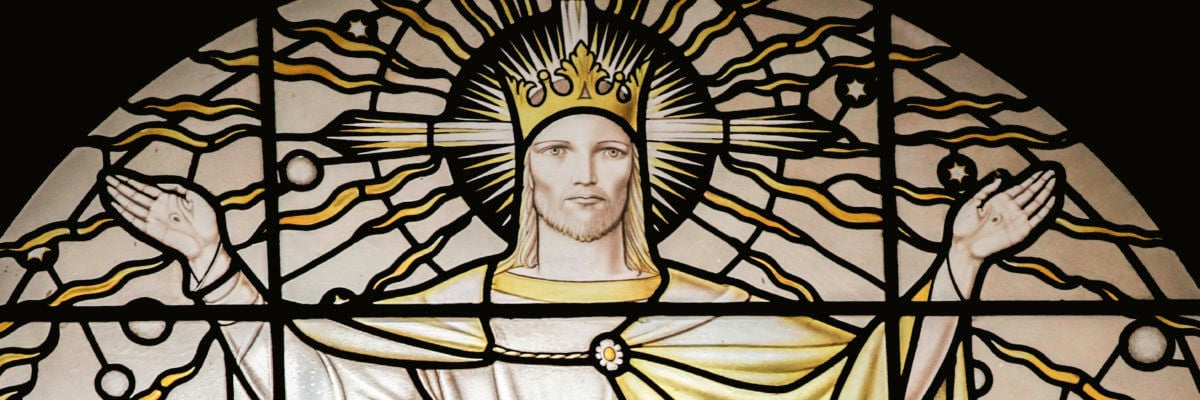
When we hear Jesus’ parable in Matthew about the two sons, we often move immediately to the “application” phase of reading: what does this story teach us about ourselves, about our own failings, about our own next steps? There’s a lot to this kind of reading, both for Jesus’ audience in Matthew and for us today. After all, it’s an interesting story, because it refuses to give us a good guy and a bad guy, a hero and a villain. We have instead the son who refuses his father, only to later repent, and the son who verbally respects his father, only to disobey him later.
There is one clear meaning to this parable, and Jesus tells us right away what it is: it is better to be a sinner who repents and believes than to be a good person who does not believe, or rather to be a person who seems good but isn’t. This message echoes our passage from Ezekiel, who insists that individuals really are judged on their own merits, not on those of their parents. Whether that message gives us comfort or convict us will depend entirely on who we are.
All the same, I wonder if the parable is, at the end of the day, mainly about us. What does the parable tell us about the father? What, in other words, does the parable tell us about God?
This may seem like an odd question, but Jesus tells this parable in response to a bunch of religious leaders coming to him and asking, “By what authority are you doing these things?”
That is an important question, but the people who asked it weren’t ready, according to Jesus, to hear a direct answer. And perhaps that is because they were simply not prepared to accept the kind of authority that Jesus had.
Moving for a moment outside this specific passage in Matthew, we can give the game away by saying Christians have a definite answer to this question: Jesus does things by divine authority. He has authority because he is God, because he is authority. The buck stops with him.
But saying Jesus has the full authority of divinity doesn’t actually tell us immediately what that authority looks like. How in fact does God wield his authority? What does it mean to say God has authority over all things?
First, God’s authority comes from his identity as creator. Jesus, the incarnate Word of God, shares this creating power fully. He is, in the words of Colossians, the “image of the invisible God,” and according to the Gospel of John, he was there with the Father from all eternity, and “all things were made through him.” In a lesser, analogous way, the father in today’s parable exerts authority over his sons precisely because he is their father, because he is the source of their existence. Unlike an earthly father, though, God the Father is the source not just of our beginning, but of our end, and of every moment in between.
With this creative authority comes also the power and the authority to judge. Creation itself is a judgment in the sense that it is a sovereign choice, a decision, stemming from the absolute freedom of God. God’s freedom in judgment continues, then, as we see in Ezekiel this morning, in his authority to judge good and evil, life and death. Earlier in chapter 18, a little before today’s selection, we hear this: “Behold, all souls are mine; the soul of the father as well as the soul of the son is mine: the soul that sins shall die.” In a lesser way, the father in the parable has authority to judge his sons: he can say, after the day is done, who has done well and who has not, who has fulfilled his duties and who has not.
This strong image of an almighty creating and judging God would have been familiar to the religious leaders of the day, as it is to us. We may not particularly like this vision of divine authority, but at least it makes sense.
There is a second principle of authority that we see today, one that may strike people in the first and the 21st century as strange. It comes from the famous “Christ hymn” of Philippians; it is the idea that the greatest weakness is somehow connected with the greatest power. Holy Church reflects on this in one of our collects (in the Divine Worship Missal), back from the 11th Sunday after Trinity, when we declare that God shows his almighty power “chiefly in showing mercy and pity.”
Surely, we might think, that cannot be true. Isn’t mercy, by definition, a loosening of power?
What that prayer is trying to get at is, I think, the same thing that Paul is trying to get at in Philippians. This passage is, by the way, quite possibly one of the oldest parts of the New Testament — many scholars suspect that Paul may have taken it from the primitive liturgy of the Church. This passage is entirely about the power of God, but Paul makes it clear that this power, this authority, is most fully revealed in weakness: “And being found in human form he humbled himself and became obedient unto death, even death on a cross. Therefore God has highly exalted him and bestowed on him the name which is above every name.”
For St. Paul, the cross is not fundamentally a moment of weakness, or of powerlessness. It is not a moment in which God’s authority has been questioned, or qualified, or lessened. It is exactly the moment that shows the ultimate lordship and glory of the Son of God. Because the Son did not find “equality with God” something “to be grasped.”
This is an extraordinary thing to say, and what it means is this: God is so powerful, so almighty, so divine, so full of authority, that he has absolutely no need to prove that authority. A lesser deity, a less powerful Son, an incarnation of lower authority, would have rejected the humiliation of the cross as something beneath his dignity. But our God, the God of Jesus Christ, chooses exactly this moment of weakness to show his power; he is so powerful that he can afford to be weak; he is so just that he can afford to show mercy; he is so righteous that he can afford to show pity. The figure of the crucified Lord is not an image of defeat; it is the Lord Jesus at his most triumphant. Because even there, on the cross, even through the bloodshed and agony and humiliation, he remains Lord of all things, and it is precisely because he is Lord of all things even there that his lordship is worthy, that his lordship is not just the power of an arbitrary despot, that his authority truly stems from who he is and not just from the fact that he can beat up everyone else in the room.
In the cross it becomes clear that our worldly understanding of power is not powerful enough. Our worldly understanding of authority is not authoritative enough. With God, almighty power is shown most clearly in showing mercy.
This is important to understand, because it is easy for us to think about the amazing forgiveness and mercy of God as an act of weakness. God’s mercy is a theme that just keeps coming up in the lectionary over and over in these last few weeks. It is easy for us to think God has in some sense given in to our need. And though this may make us appreciate God, or be affectionate for God, it might give us an impression of God that is something more like a kindly, permissive grandfather than the awesome and incomprehensible source of all being.
But it is exactly in God’s forgiveness and mercy that his awesome and incomprehensible power is made known. And this is why Paul asks us, later in this same chapter, to “work out [our] own salvation with fear and trembling,” because it is no light matter to say that God has become one of us and put everything on the line for our sake. It is frightening, because if God has become like us, we must become like God: we must be willing see our lives, our possessions, our talents, our work not as possessions to be grasped, but as opportunities for self-giving.
Returning, finally, to the parable from Matthew, I wonder if part of the message about the two sons and the father is that there is no easy place to be in this story. Even the best of us say one thing and do another, and what matters is not that we get it all sorted out right at once, but that we head in the right direction, that we put aside our pride and do what it takes to form in ourselves “the same mind” as Christ Jesus, as Paul says. We have to find the strength to fail, the strength to risk the core of our human identity, for the sake of the one who risked everything for us.
Image: Lawrence OP via Flickr, CC BY-NC-ND 2.0.



